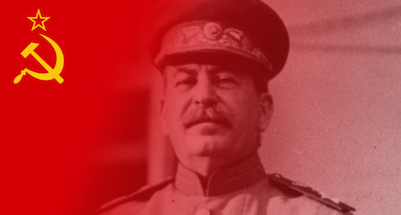The building's brutal legacy is of no concern to the modern-day FSB.
Pervasively the ghost of Stalin still lingers in Russia today. In 2008 a national survey conducted via an online TV vote to determine the country's most favourite and revered national figure. The TV poll, ‘The Name of Russia', reduced the list of 500 nominees down to twelve. During the vote the TV producers were alarmed that Stalin was a leader in the poll and urged the viewers to vote for someone else. Final results put Stalin in third place behind a medieval warrior in first and a Tsarist prime minister second. But all were convinced that Stalin in reality placed first. A 2013 poll indicated that respondents placed the neo-Stalinist Leonid Brezhnev first as the ‘best head of state in the past century'. Vladimir Lenin placed second and Joseph Stalin third. Two thirds of the respondents gave negative evaluations to the two leaders who promoted authentic de-Stalinization, Mikhail Gorbachev and Boris Yeltsin.
Russian academics have several different explanations for this. Professor Valery Solovei states that, “No one would want to live in Stalin's era, but he personifies what is now in shortage: justice and equality in fear.” Political analyst Sergey Chernyakhovsky explains that Gorbachev and Yeltsin's rule is identified with “defeats” with no material prosperity. “Freedom brings uncertainty, while people prefer certainty and clear perspectives. … Rights and freedoms are too abstract. … First of all people appreciate the right to social guarantees and labour” (which Stalin and Brezhnev seemingly provided).
After Stalin's death in 1953, the public display of grief dramatically showed the intensity of the population's feelings towards a murderous tyrant and yes, also a revered leader. His body lay in state and the surge of distraught mourners was so uncontrollable that some 500 people died in the mad crush.
In 2009 a plaque unveiled at a Moscow metro station included a line from the former Soviet national anthem: “Stalin brought us up to be loyal to people, inspired us to labour and feats.” Over sixty years ago Kruhschev had two statues of Stalin removed in the town of Penza. While in 2011 a new statue of Stalin was unveiled in the same town, no memorial has been unveiled anywhere to the victims of Stalin's tyranny.
It's not only the older generation that see Stalin as a symbol of national pride, order and power. Just recently a teachers' manual, published by a state-sponsored educational publisher argues that considering Russia's historical context of time and circumstance, with Stalin perceiving the revolution to be threatened, Stalin acted ‘entirely rationally'.
Medvedev's meager efforts at de-Stalinization ground to a halt when his ‘pretend presidency' ended and Putin returned to power. At the official level, Stalin as a topic rarely has a public airing. However organizations such as Memorial, researching Stalin and his era have been allowed to continue and books and personal accounts depicting the horrors of Stalin's cruelty are easily available. But also major bookstores offer books that glorify Stalin and his accomplishments. These tomes are not exposed as promoting revisionist history. Some titles: USSR without Stalin – The path to catastrophe; The Forbidden Truth about ‘Stalin's repressions'. A conservative estimate about the total print run of these most popular books is placed at over 100,000 copies.
As an obvious comparison, one cannot imagine a holocaust denying work outside of Russia having wide distribution. It would be unlikely that such books could gain any credibility with recognized publishers. The book and author would be lambasted by practically all media and marginalized from mainstream distribution. In fact in many countries the author is likely to be charged with fomenting inter-ethnic hatred.
In general, while Stalin's atrocities have been condemned internationally, Stalin is still seen as a highly skillful politician who had no compunction in eliminating his highly placed closest colleagues if he sensed or fantasized the slightest disloyalty in them. Many observers who have seen the resurgence of Stalinism during Vladimir Putin's reign see Putin's governing style to have similar tendencies in maintaining power, especially in his tolerance/intolerance of a political opposition. (To be continued.)
Laas Leivat
- Opinion – Stalinization, de-Stalinization, what's it to be? – VIII
- Opinion – Stalinization, de-Stalinization, what's it to be? – VII
- Opinion – Stalinization, de-Stalinization, what's it to be? – VI
- Opinion – Stalinization, de-Stalinization, what's it to be? – V
- Opinion – Stalinization, de-Stalinization, what's it to be? – IV
- Opinion – Stalinization, de-Stalinization, what's it to be? – III
- Stalinization, de-Stalinization, what's it to be? – II
- Stalinization, de-Stalinization, what's it to be? – I




